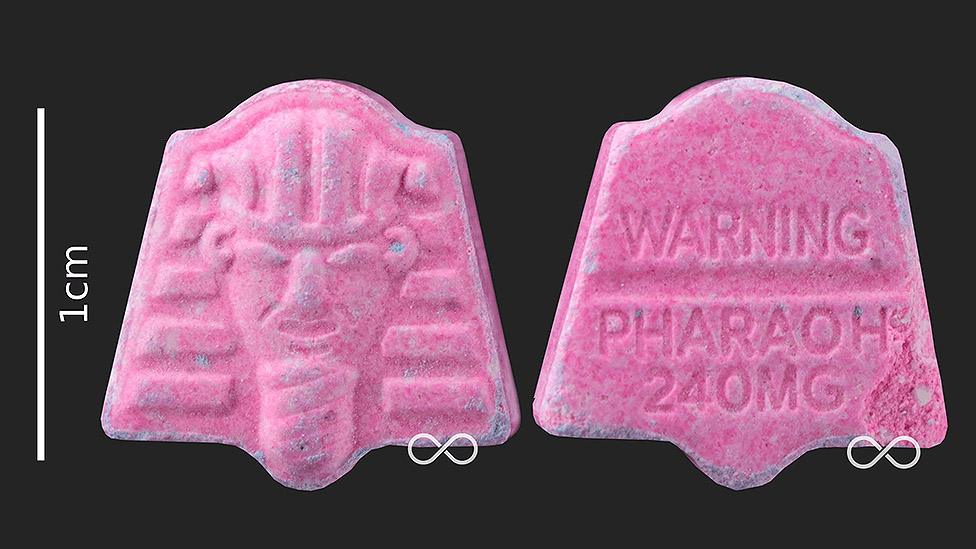Freshers Week: Organised criminals targeting universities
- Published
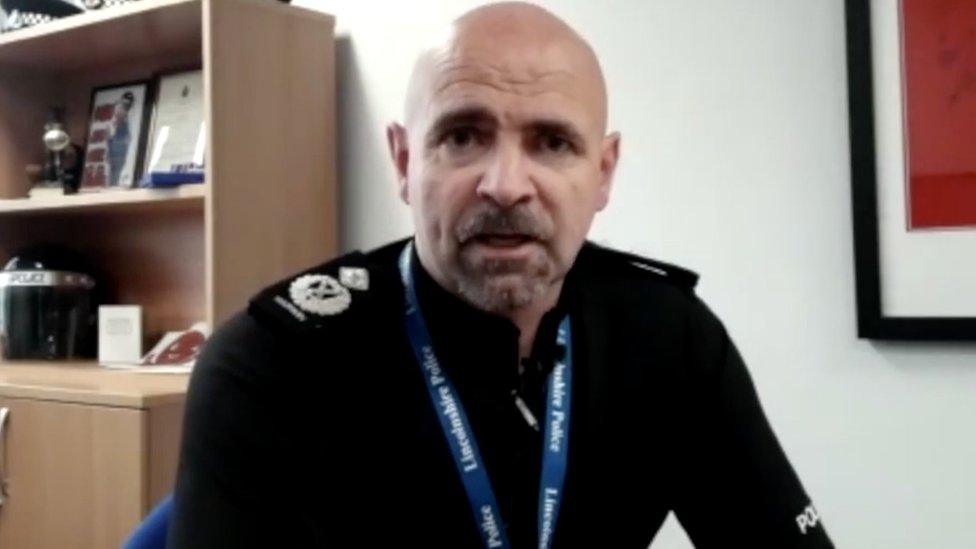
Jason Harwin says organised criminals are targeting university students
New students are being targeted by organised crime gangs who want to provide drugs to parties, a senior police officer has said.
This week is freshers week at many universities, with thousands of North East students embracing socialising.
With Covid hitting last year's events, students face an "increased risk" from taking illegal substances, the National Police Chiefs Council (NPCC) said.
NPCC drugs lead Jason Harwin said there was "high demand for illicit drugs".
Last year three university students and a man died in suspected drugs-related incidents in north-east England.
'Take action'
Mr Harwin said: "We are aware from our proactive approach that organised criminals are looking to target such events as freshers, and are looking to ensure they have the necessary availability of drugs.
"We've got to recognise that we're going into a freshers period that some students didn't get last year. That in itself brings an increased risk.
"We know there's a high demand for illicit drugs. What we want people going to university to do is to get the best out of their education.
"If we've got intelligence that suggests that a significant amount of drugs are at a location and are going to be dealt to students in universities, or anywhere else, then we will take action."
He stressed any students found possessing illicit drugs could face police action and expulsion from their studies.
He said police would "clearly" execute warrants for university halls if they needed to.
A 2018 survey from the National Union of Students found the most popular drugs were cannabis, nitrous oxide, ecstasy and cocaine - with two out of five students using them at parties.

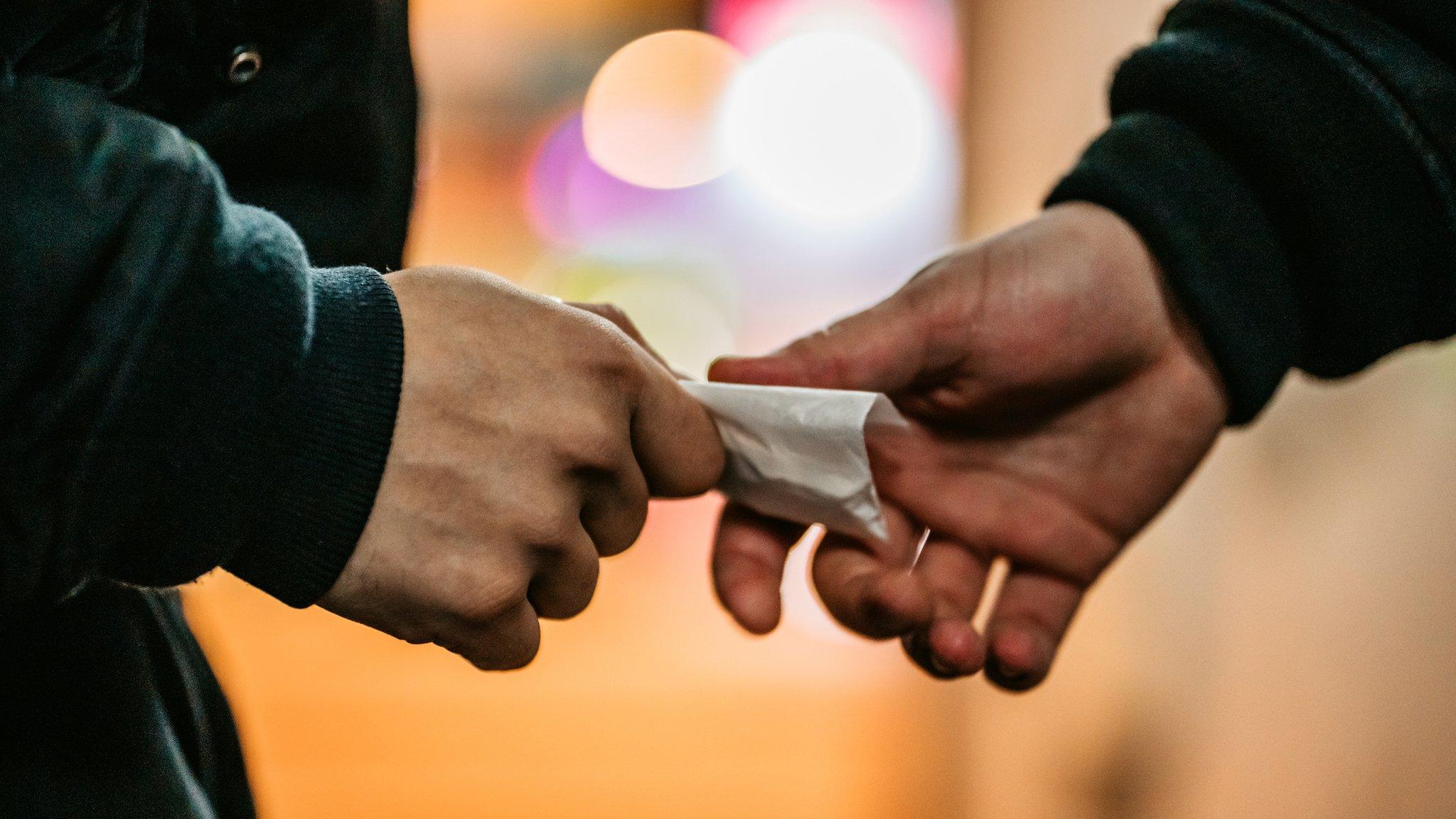
Chris sold drugs to his mates so his were "free"
Chris is a former North East student now studying in a different city for a Masters degree in psychology, so has experience of being at university - but he also has lived experience of addiction, and he used to be a dealer.
"I sold ecstasy, Mkat [mephedrone], weed and a bit of speed. I started drugs when I was 15," he said.
He said he sold ecstasy to his friends and would go to clubs and sell it there too.
'Get a bit extra'
"Obviously it was a crime but you didn't see it as a problem," he said.
"It was like, well, me and my mates wanna get high, we need to get it from somewhere, I may as well be the one to get it and I may as well get a bit extra and make mine be free.
"The amount of drugs I was doing, you couldn't really say I wasn't a drug addict but the way I would deflect that was to say, 'I'm not a drug addict, I'm a drug dealer - I'm taking all these drugs to stay awake and make my money'.
"One of my friends died, a younger friend of ours passed away. People started dying and I eventually got arrested.
"Once the real-life consequences kicked in it was more bleak to be around. I came to the realisation that this wasn't sustainable and some changes needed to be made."
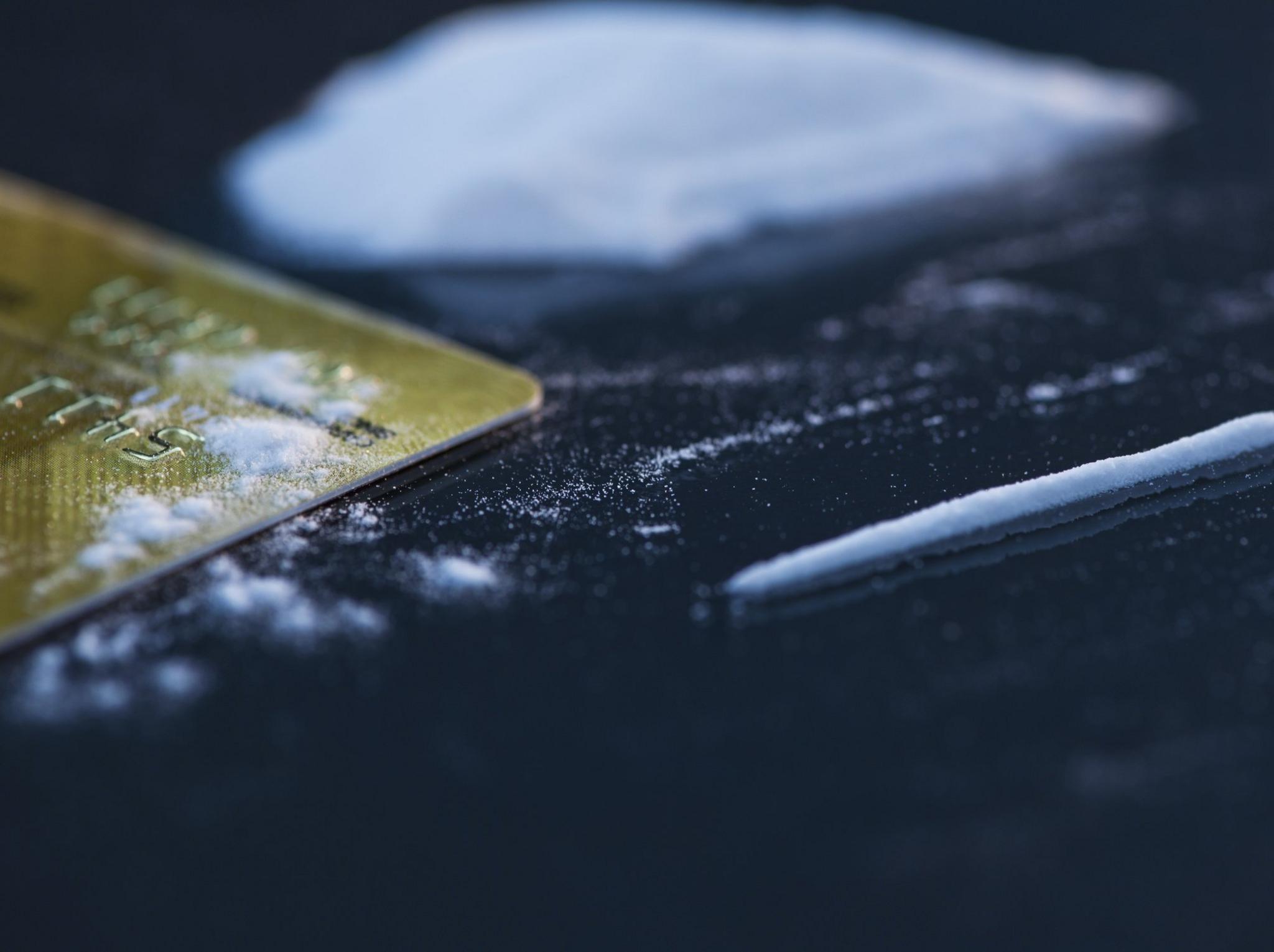
A survey found cocaine was one of the most popular drugs for students
His parents had urged him to get help in the past, but he described his attempts to get sober as "half-hearted".
This changed when Chris was arrested and charged with offences related to his drug dealing.
"Having that court case hanging over me meant getting sober was the only option. I never thought of myself as brave for what I was doing, I wasn't proud of myself. It'd be like throwing yourself down the stairs and being proud of yourself for getting back up and walking.
"I don't feel like I deserved any praise for the stupid mistakes I'd made."
Chris was given a suspended sentence. He continued treatment, and eventually applied for a foundation course at university.
But after a year-and-a-half in sobriety, Chris says he was "a little overconfident" and resumed using drugs.
"I thought the safest thing to do would be not to buy drugs down there but to take my own drugs that had been tested. I found it safer," he said.
Eventually he went clear, and now - with a first-class degree - he said he was "happy".
"Nothing's ever perfect, but compared to where I was, this is an actual life."

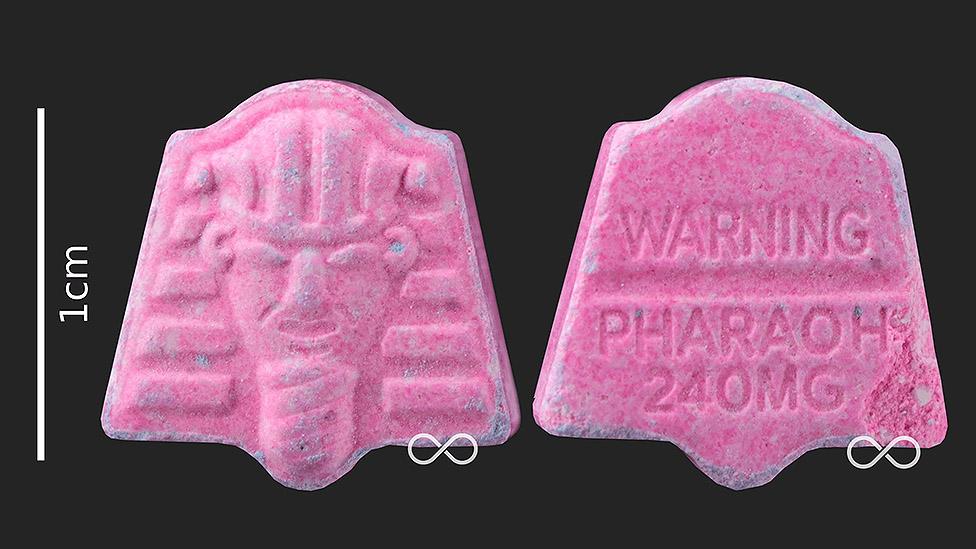
The charity found similar-looking pills could have very different chemicals in them
Earlier this week, drug testing charity the Loop issued warnings about identical-looking pills which contained different chemicals.
Prof Fiona Measham, chair of criminology at Liverpool University and the director of the Loop, said the best safety advice was "not to take the drugs" in the first place.
However, she said drugs users who decided to ignore that advice should "always have a tiny, tiny dose and wait a couple of hours to see the effect before having more".
If you have been affected by the issues in this story contact BBC Action Line.

Follow BBC North East & Cumbria on Twitter, external, Facebook, external and Instagram, external. Send your story ideas to northeastandcumbria@bbc.co.uk, external.
Related topics
- Published5 October 2020
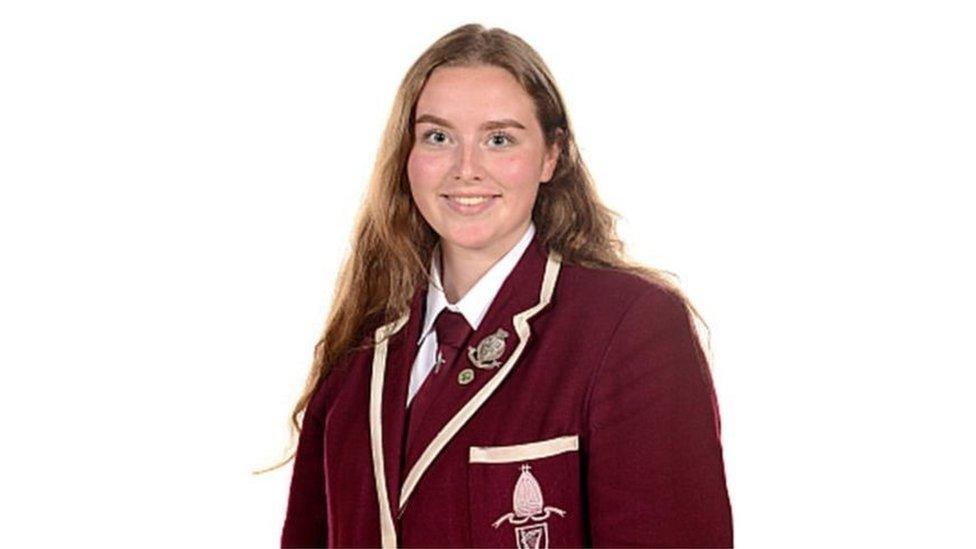
- Published20 September 2021
